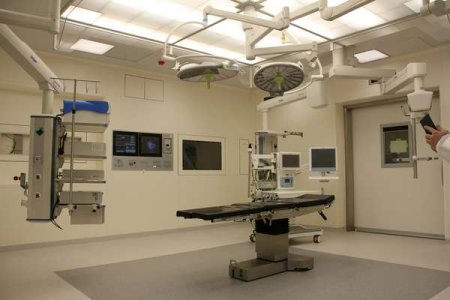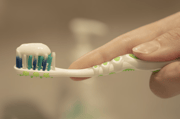276 million Americans just had their data stolen in a massive healthcare hack—Are you one of them?
- Replies 0
If you’ve ever visited a doctor, filled a prescription, or scheduled a medical appointment online, your most sensitive information could be at risk.
In 2024, a jaw-dropping 276 million Americans—roughly 8 out of every 10 people in the country—had their healthcare data compromised in a series of unprecedented cyberattacks.
For many, this means that everything from Social Security numbers to medical histories and insurance details may now be in the hands of cybercriminals.
The Biggest Healthcare Breach in US History
The largest of these breaches centered around Change Healthcare, a company that processes insurance claims and payments for millions of Americans.
In early 2024, hackers infiltrated their systems, exposing the personal data of an estimated 190 million patients.
But the attacks didn’t stop there. In March 2025, Yale New Haven Health, a major hospital network, suffered a breach affecting 5.5 million more individuals.
And these are just the headline-grabbing incidents; smaller breaches are happening every day, often flying under the radar.

How Are Hackers Getting In?
Cybercriminals are getting more creative—and more convincing. According to cybersecurity watchdog Check Point, a new wave of attacks involves hackers impersonating real, practicing doctors.
They use stolen images and fake names to send phishing emails, tricking patients into revealing Social Security numbers, insurance details, and even full medical histories.
One favorite tool of these scammers? Zocdoc, a popular online appointment platform. Hackers create fake doctor profiles using real photos, then send out bogus appointment confirmations and requests for sensitive information.
If you’ve received an unexpected email or text from a healthcare provider, it’s wise to double-check before responding.
Also read: Health insurance data hack hits millions—here’s how to protect yourself
Even more alarming, some hackers are targeting the very devices that keep hospitals running—like MRI machines and other medical equipment.
Many of these devices lack basic security protections, making them easy entry points for cybercriminals to access entire hospital networks.
The Real-World Impact: More Than Just Numbers
The fallout from these breaches isn’t just about stolen data—it’s about real people facing real consequences.
Victims of medical identity theft spend, on average, 210 hours and $2,500 out of pocket to reclaim their identities and fix the damage. That’s time and money most of us can’t afford to lose.

And the disruption goes beyond finances. When systems go down, insurance claims can’t be processed, prescriptions are delayed, and some patients are forced to pay out of pocket for critical medications.
Smaller healthcare providers, already stretched thin, can face devastating revenue losses that threaten their very survival.
Source: wgaltv / Youtube.
Why Is Healthcare So Vulnerable?
The healthcare industry is a prime target for hackers for several reasons:
Also read: Is your health harmed? Find out if you’re one of the million affected by the latest massive data breach!
What’s Being Done to Fix This?
In response to these massive breaches, new regulations are on the horizon.
In January 2025, a set of proposed HIPAA (Health Insurance Portability and Accountability Act) rules aimed to strengthen data encryption and enforce stricter compliance checks. The cost? An estimated $9 billion in the first year alone, with $6 billion annually for ongoing improvements.
Healthcare organizations are also being urged to:
- Install advanced phishing filters
- Conduct regular cybersecurity training for staff
- Run mock drills to prepare for attacks
- Upgrade outdated systems and medical devices
Source: CBS Chicago / Youtube.
But while these steps are critical, they take time—and the threat is immediate.
“Patients are encouraged to review statements from their healthcare providers and report any inaccuracies immediately,” said Yale New Haven Health.
On the other hand, UnitedHealth Group stated, “The company has restored most of the affected Change Healthcare services while continuing to provide financial assistance to remaining healthcare providers in need.”

What Can YOU Do to Protect Yourself?
While you can’t control how hospitals and insurance companies handle your data, you can take steps to minimize your risk and respond quickly if your information is compromised:
1. Monitor Your Accounts: Regularly check your bank, credit card, and insurance statements for unfamiliar charges or claims.
2. Request Your Credit Report: You’re entitled to a free credit report every year from each of the three major bureaus. Look for any accounts or activity you don’t recognize.
3. Set Up Fraud Alerts: If you suspect your data has been stolen, contact the credit bureaus to place a fraud alert on your file.
4. Be Wary of Unsolicited Messages: Never share personal information in response to unexpected emails, texts, or phone calls—even if they appear to come from a trusted healthcare provider.
5. Review Medical Statements: Carefully read any statements from your doctor or insurance company. Report any unfamiliar treatments or charges right away.
6. Use Strong, Unique Passwords: For online patient portals, use passwords that are hard to guess and different from those you use elsewhere.
7. Ask Questions: Don’t be afraid to ask your healthcare provider how they protect your data and what steps they’re taking to improve security.
Source: CBS News / Youtube.
Read next: Are US shops the next target? Google warns of cybercrime wave crippling retailers

Have you or someone you know been affected by a healthcare data breach? Do you have tips for staying safe online, or questions about what to do if your data is compromised? Share your stories and advice in the comments below!
In 2024, a jaw-dropping 276 million Americans—roughly 8 out of every 10 people in the country—had their healthcare data compromised in a series of unprecedented cyberattacks.
For many, this means that everything from Social Security numbers to medical histories and insurance details may now be in the hands of cybercriminals.
The Biggest Healthcare Breach in US History
The largest of these breaches centered around Change Healthcare, a company that processes insurance claims and payments for millions of Americans.
In early 2024, hackers infiltrated their systems, exposing the personal data of an estimated 190 million patients.
But the attacks didn’t stop there. In March 2025, Yale New Haven Health, a major hospital network, suffered a breach affecting 5.5 million more individuals.
And these are just the headline-grabbing incidents; smaller breaches are happening every day, often flying under the radar.

In 2024, 276 million patient records were compromised in major healthcare data breaches in the United States, affecting around eight in ten Americans. Image source: Marcelo Leal / Unsplash.
How Are Hackers Getting In?
Cybercriminals are getting more creative—and more convincing. According to cybersecurity watchdog Check Point, a new wave of attacks involves hackers impersonating real, practicing doctors.
They use stolen images and fake names to send phishing emails, tricking patients into revealing Social Security numbers, insurance details, and even full medical histories.
One favorite tool of these scammers? Zocdoc, a popular online appointment platform. Hackers create fake doctor profiles using real photos, then send out bogus appointment confirmations and requests for sensitive information.
If you’ve received an unexpected email or text from a healthcare provider, it’s wise to double-check before responding.
Also read: Health insurance data hack hits millions—here’s how to protect yourself
Even more alarming, some hackers are targeting the very devices that keep hospitals running—like MRI machines and other medical equipment.
Many of these devices lack basic security protections, making them easy entry points for cybercriminals to access entire hospital networks.
The Real-World Impact: More Than Just Numbers
The fallout from these breaches isn’t just about stolen data—it’s about real people facing real consequences.
Victims of medical identity theft spend, on average, 210 hours and $2,500 out of pocket to reclaim their identities and fix the damage. That’s time and money most of us can’t afford to lose.

Cybercriminals are increasingly using sophisticated phishing attacks, even impersonating real doctors via platforms like Zocdoc, to steal sensitive information such as Social Security numbers and medical histories. Image source: Marcel Scholte / Unsplash.
And the disruption goes beyond finances. When systems go down, insurance claims can’t be processed, prescriptions are delayed, and some patients are forced to pay out of pocket for critical medications.
Smaller healthcare providers, already stretched thin, can face devastating revenue losses that threaten their very survival.
Source: wgaltv / Youtube.
Why Is Healthcare So Vulnerable?
The healthcare industry is a prime target for hackers for several reasons:
- Outdated Technology: Many hospitals and clinics still rely on old computer systems that lack modern security features.
- Valuable Data: Medical records contain a goldmine of information—far more than a typical credit card breach.
- Complex Networks: With so many devices and systems connected, one weak link can compromise an entire network.
- Limited Resources: Smaller providers often lack the budget or expertise to keep up with evolving threats.
Also read: Is your health harmed? Find out if you’re one of the million affected by the latest massive data breach!
What’s Being Done to Fix This?
In response to these massive breaches, new regulations are on the horizon.
In January 2025, a set of proposed HIPAA (Health Insurance Portability and Accountability Act) rules aimed to strengthen data encryption and enforce stricter compliance checks. The cost? An estimated $9 billion in the first year alone, with $6 billion annually for ongoing improvements.
Healthcare organizations are also being urged to:
- Install advanced phishing filters
- Conduct regular cybersecurity training for staff
- Run mock drills to prepare for attacks
- Upgrade outdated systems and medical devices
Source: CBS Chicago / Youtube.
But while these steps are critical, they take time—and the threat is immediate.
“Patients are encouraged to review statements from their healthcare providers and report any inaccuracies immediately,” said Yale New Haven Health.
On the other hand, UnitedHealth Group stated, “The company has restored most of the affected Change Healthcare services while continuing to provide financial assistance to remaining healthcare providers in need.”

The financial and operational impact of these breaches is significant, with costs reaching billions of dollars and causing major disruptions for both patients and healthcare providers. Image source: National Cancer Institute / Unsplash.
What Can YOU Do to Protect Yourself?
While you can’t control how hospitals and insurance companies handle your data, you can take steps to minimize your risk and respond quickly if your information is compromised:
1. Monitor Your Accounts: Regularly check your bank, credit card, and insurance statements for unfamiliar charges or claims.
2. Request Your Credit Report: You’re entitled to a free credit report every year from each of the three major bureaus. Look for any accounts or activity you don’t recognize.
3. Set Up Fraud Alerts: If you suspect your data has been stolen, contact the credit bureaus to place a fraud alert on your file.
4. Be Wary of Unsolicited Messages: Never share personal information in response to unexpected emails, texts, or phone calls—even if they appear to come from a trusted healthcare provider.
5. Review Medical Statements: Carefully read any statements from your doctor or insurance company. Report any unfamiliar treatments or charges right away.
6. Use Strong, Unique Passwords: For online patient portals, use passwords that are hard to guess and different from those you use elsewhere.
7. Ask Questions: Don’t be afraid to ask your healthcare provider how they protect your data and what steps they’re taking to improve security.
Source: CBS News / Youtube.
Read next: Are US shops the next target? Google warns of cybercrime wave crippling retailers
Key Takeaways
- In 2024, 276 million patient records were compromised in major healthcare data breaches in the United States, affecting around eight in ten Americans.
- Cybercriminals are increasingly using sophisticated phishing attacks, even impersonating real doctors via platforms like Zocdoc, to steal sensitive information such as Social Security numbers and medical histories.
- The financial and operational impact of these breaches is significant, with costs reaching billions of dollars and causing major disruptions for both patients and healthcare providers.
- Experts are urging healthcare organisations to upgrade their cybersecurity, including more robust encryption, staff training, and regular audits, as new HIPAA rules are proposed to better protect patient information.
Have you or someone you know been affected by a healthcare data breach? Do you have tips for staying safe online, or questions about what to do if your data is compromised? Share your stories and advice in the comments below!






